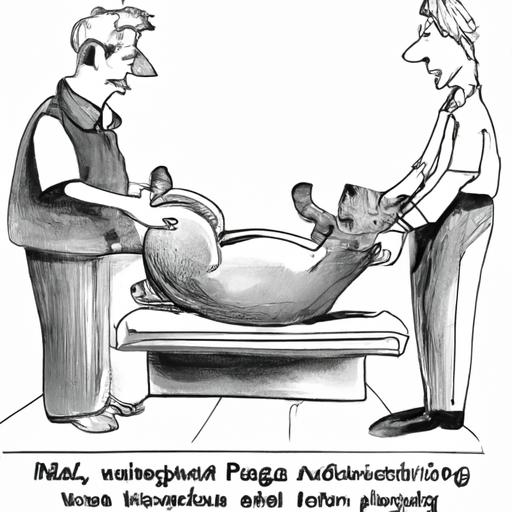As a dog owner, one of your worst nightmares is likely seeing your beloved pet in pain or discomfort. One common ailment that can cause significant distress in dogs is bloating. Bloating, also known as Gastric Dilatation-Volvulus (GDV), is a serious medical condition that requires immediate attention. In this comprehensive guide, we will explore the various ways to relieve bloat in dogs and prevent such situations from happening in the future.
- Table of Contents
- Understanding Bloat in Dogs
- Causes of Bloat in Dogs
- Symptoms to Look Out For
- How to Relieve Bloat in Dogs
- Preventing Bloat in Dogs
-
Frequently Asked Questions
-
Key Takeaways
- Bloat in dogs can be life-threatening and requires immediate veterinary attention.
- Symptoms of bloat include a swollen abdomen, excessive drooling, and restlessness.
- Quick action in relieving bloat can significantly improve a dog’s chance of survival.
- Preventing bloat involves strategies like feeding smaller meals more frequently and avoiding strenuous exercise after meals.
Understanding Bloat in Dogs
Bloat in dogs is a condition where the dog’s stomach fills with gas and possibly twists, preventing the gas from escaping. This can lead to a rapid and painful expansion of the dog’s abdomen, which can cause distress and potentially lead to other serious complications like organ failure or even death. According to the American Kennel Club, bloat is the second leading cause of death in dogs after cancer.
Causes of Bloat in Dogs
There are several factors that can cause bloat in dogs. Some of the most common include:
- Fast Eating: Dogs that eat their food too quickly are more likely to swallow air, which can lead to bloating.
- Large Meal Portions: Feeding your dog large meals can cause their stomach to stretch, increasing the risk of bloating.
- Strenuous Exercise After Eating: Exercising your dog immediately after they’ve eaten can cause their stomach to twist or turn, leading to bloating.
For more in-depth information, consider reading this comprehensive guide on OneTopDog.
Symptoms to Look Out For
Recognizing the symptoms of bloat in dogs is crucial as it can make all the difference in saving your dog’s life. Keep an eye out for:
- A swollen or hard abdomen
- Excessive drooling or panting
- Restlessness or pacing
- Attempts to vomit, but nothing comes out
Here’s an informative article on OneTopDog that details more on the symptoms of bloat in dogs.
How to Relieve Bloat in Dogs
The most important thing to remember is that bloat in dogs is a medical emergency. If you suspect your dog is bloated, take them to the vet immediately. The vet will take steps to stabilize your dog and then perform a procedure to deflate the stomach and possibly surgery to prevent future occurrences.
While waiting for medical help, try to keep your dog calm and comfortable. However, do not attempt home remedies or force your dog to vomit, as this could worsen the situation.
Preventing Bloat in Dogs
Preventing bloat in dogs is possible with a few lifestyle adjustments. Here are some strategies you can adopt:
- Feed your dog smaller meals more frequently
- Avoid strenuous exercise before and after meals
- Use a slow feeder bowl to slow down your dog’s eating pace
- Consider a preventative surgery if your dog is at high risk
For more preventative measures, visit OneTopDog.
Frequently Asked Questions
1. Are some dog breeds more prone to bloat?
Yes, large and giant breeds like Great Danes, German Shepherds, and Boxers are more susceptible to bloat.
2. Can bloat in dogs resolve itself?
No, bloat in dogs is a medical emergency that requires immediate veterinary attention.
3. Can a dog survive bloat without treatment?
The chances are very low. Bloat can lead to other serious complications like organ failure or even death.
4. What should I do if I think my dog has bloat?
Immediately take your dog to a vet. Time is of the essence when dealing with bloat in dogs.
Remember, as a caregiver, your pet’s health and happiness are in your hands. By understanding how to relieve bloat in dogs, you can ensure that your furry friend leads a comfortable and healthy life.



